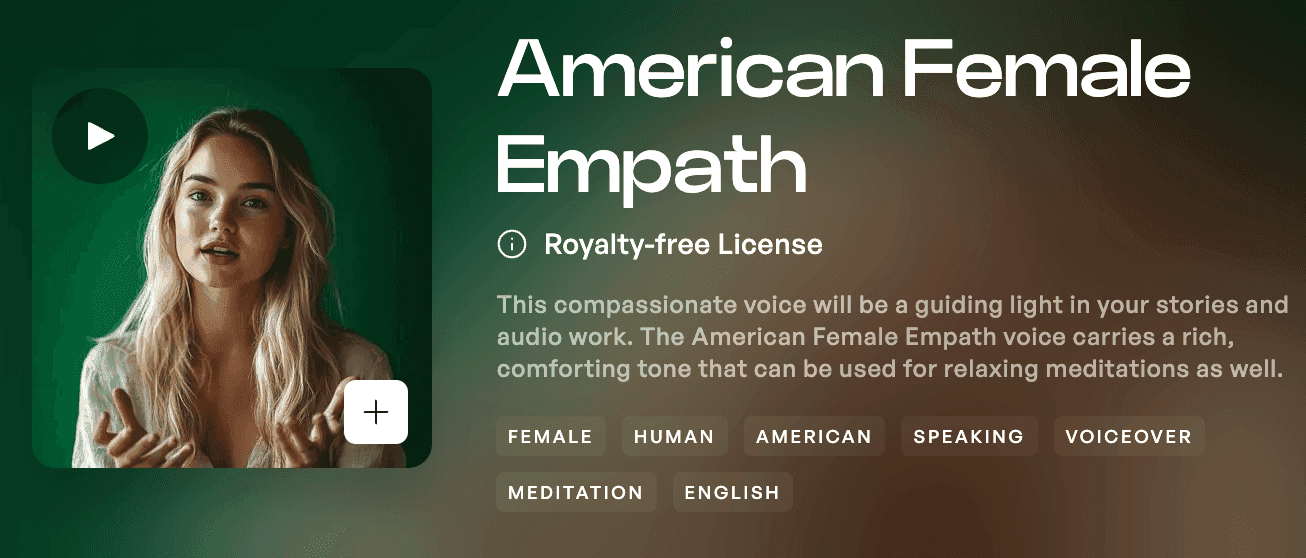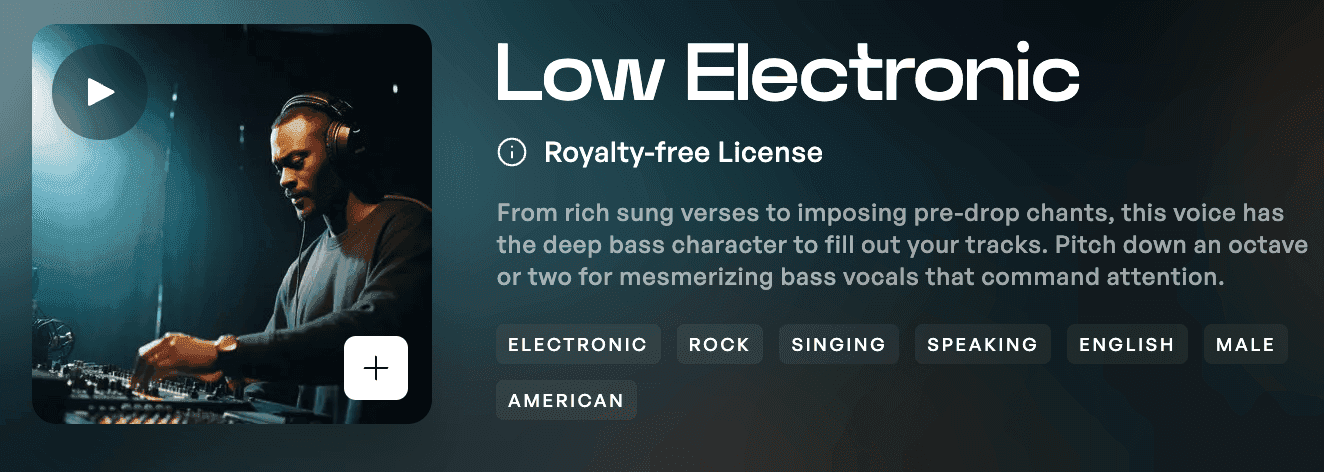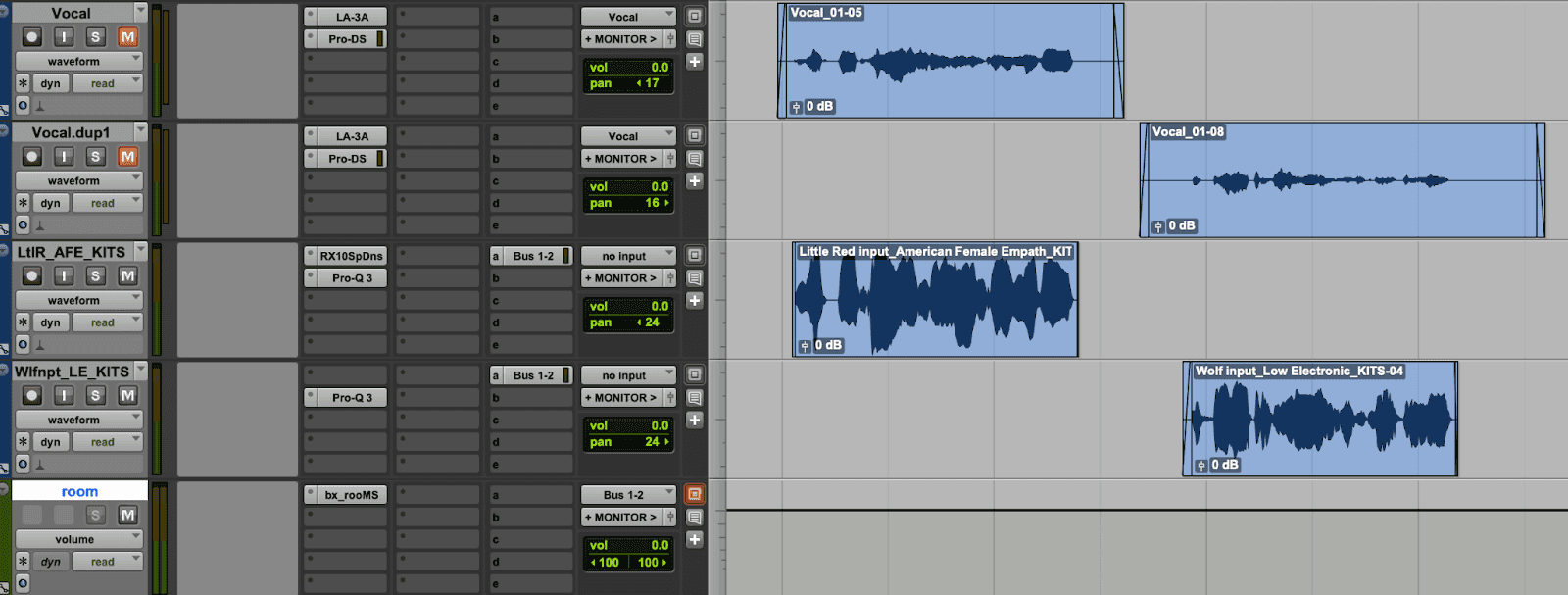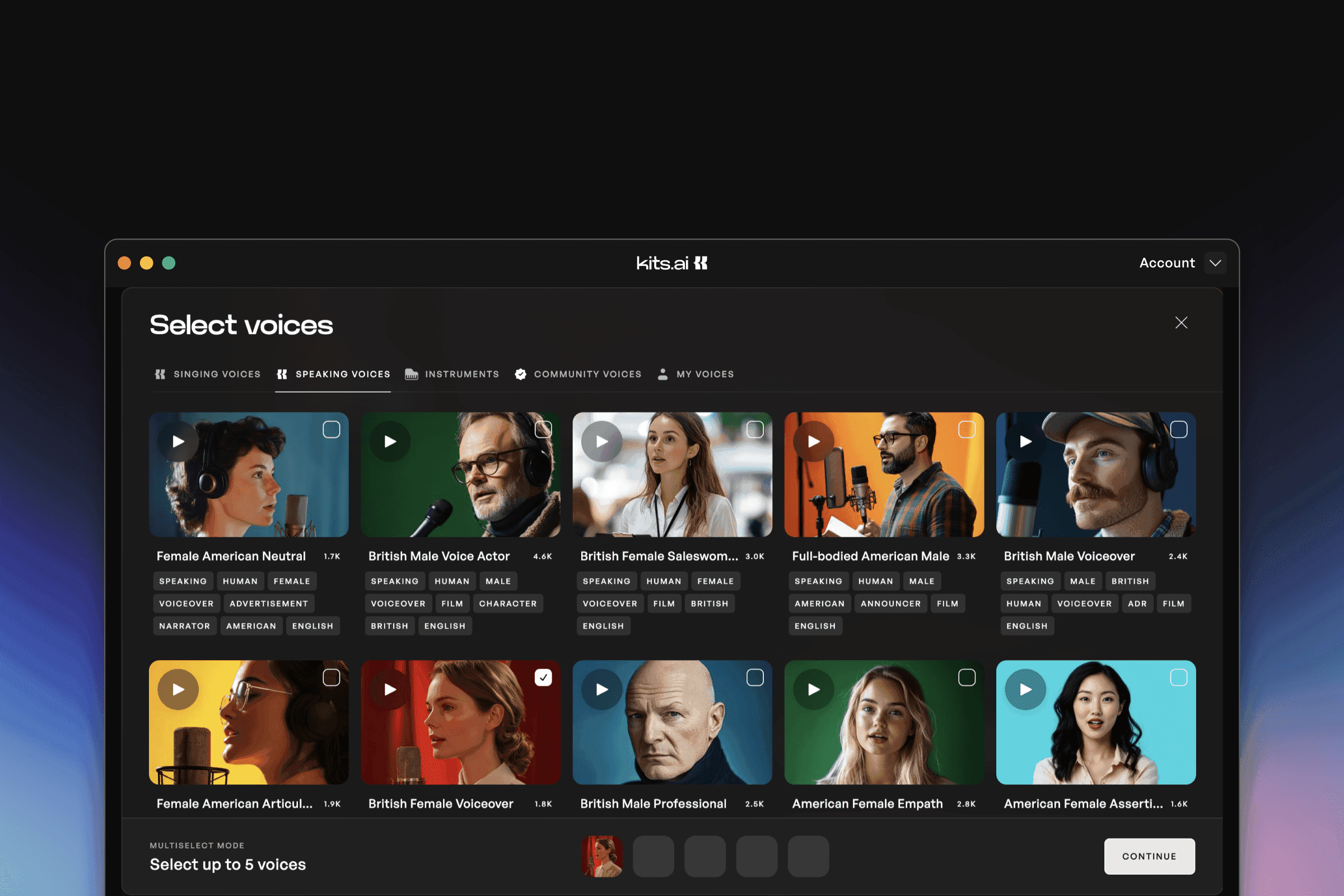Comment utiliser les voix parlantes de Kits AI
Écrit par
Publié le
27 novembre 2024
Ouvrir un Nouveau Monde
Tandis que la plupart des gens se tournent vers Kits AI pour améliorer leurs productions musicales, il y a tout un autre aspect de la plateforme qui mérite d'être exploré. Nos modèles de voix parlantes libres de droits et Voix de la Communauté ouvrent un monde de possibilités pour les créateurs travaillant en dehors de la musique. Que vous créiez des livres audio, produisiez des podcasts ou ajoutiez du charme à vos voix-off YouTube, ces outils peuvent apporter un caractère dynamique et une personnalité à votre travail, gardant votre public engagé du début à la fin.
Aujourd'hui, je plonge dans la manière dont les modèles de voix Kits.ai peuvent élever votre récit, en utilisant le conte intemporel de Petit Chaperon Rouge pour mettre en avant leur polyvalence. Je vais transformer ma voix en plusieurs personnages pour apporter plus de drame et d'intrigue pour aider à raconter l'histoire.
Raconter une Histoire
Petit Chaperon Rouge, un classique des Frères Grimm publié en 1812, est un exemple parfait pour démontrer la narration à voix. L'histoire suit une fille, surnommée Petit Chaperon Rouge, alors qu'elle part livrer un panier de friandises à sa grand-mère. En chemin, elle rencontre un loup rusé qui la trompe pour lui faire révéler sa destination. Le loup atteint d'abord la maison de la grand-mère, la mange, et se déguise avec ses vêtements. Lorsque Petit Chaperon Rouge arrive, elle sent que quelque chose ne va pas–mais le plan du loup est déjà en cours.
Et ensuite vient la partie la plus emblématique de l'histoire :
Petit Chaperon Rouge : “Quels grands yeux tu as, Grand-mère !”
Loup : “Pour mieux te voir, ma chère.”
Petit Chaperon Rouge : “Quelles grandes oreilles tu as, Grand-mère !”
Loup : “Pour mieux t'entendre, ma chère.”
Petit Chaperon Rouge : “Quels grandes dents tu as, Grand-mère !”
Loup : “Pour mieux te manger !”
Maintenant, imaginez recréer cette scène classique, donnant à chaque personnage une voix distinctive pour augmenter le drame–tout cela avec juste votre voix et Kits.ai.
Recréer le Drame
Voici comment j'ai donné vie à cette histoire :
Étape 1 : Enregistrer Votre Dialogue
J'ai enregistré le dialogue dans ma voix naturelle, gardant les répliques de Petit Chaperon Rouge plus légères et dans un ton plus aigu, tout en donnant au Loup un ton plus profond et sinistre. Séparer la livraison de cette manière a rendu plus facile l'amélioration des personnages durant le processus de conversion.

Étape 2 : Préparer Votre Audio
Ensuite, j'ai dupliqué ma piste et séparé les deux personnages en désactivant les sections qui n'appartenaient pas à chacun. Une fois que j'avais des pistes individuelles propres pour Petit Chaperon Rouge et le Loup, je les ai exportées en tant que fichiers séparés et me suis préparé pour la partie amusante : auditionner des modèles de voix !

Étape 3 : Choisir des Modèles de Voix
Pour Petit Chaperon Rouge : Après avoir essayé cinq modèles de voix parlantes féminins différents, Femme Empathique Américaine a volé la vedette. Pour rendre la voix encore plus jeune et légère, j'ai élevé le ton de +7 demi-tons avant d'appuyer sur le bouton "Convertir".

Pour le Loup : J'ai choisi le modèle Électronique Bas, généralement utilisé pour la parole profonde et résonnante dans des genres comme le Dubstep. Son ton riche était parfait pour le Grand Méchant Loup. Pour ajouter une menace supplémentaire, j'ai abaissé le ton de -7 demi-tons.

Choisir le bon modèle de voix est crucial pour obtenir la voix de personnage souhaitée. Les technologies IA avancées derrière ces modèles de voix créent une parole réaliste et expressive, ajoutant des nuances émotionnelles et des caractéristiques personnalisées.
Étape 4 : Ajouter les Touches Finales
Avec les voix converties, j'ai importé les deux pistes dans mon DAW. Ajouter une touche de réverbération de salle a aidé à créer l'atmosphère de la cabane de la grand-mère, rassemblant tout pour un résultat poli et dramatique.

Écoutez le avant et après pour entendre la transformation.
AVANT : Audio Original
APRÈS : Kits Traité
Conclusion
En utilisant voix parlantes IA, j'ai pu transformer un enregistrement simple en une expérience dynamique et cinématographique–tout cela avec juste ma voix et un peu de créativité. Que vous racontiez un conte de fées, produisiez un livre audio ou donniez vie à des personnages dans vos vidéos YouTube, les modèles de voix Kits.ai offrent des possibilités infinies pour améliorer votre narration.
Pourquoi se contenter de l'ordinaire quand vous pouvez captiver votre audience avec des voix uniques et expressives ? Avec Kits AI, la seule limite est votre imagination.
-SK
Sam Kearney est un producteur, compositeur et designer sonore basé à Evergreen, Colorado.

